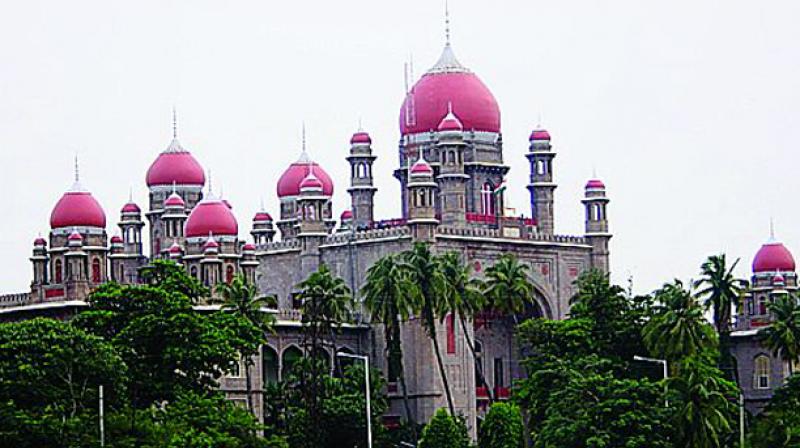Cops' seniority all tangled up

Hyderabad: The Hyderabad High Court has paved the way for resolution of the dispute regarding seniority between officers directly recruited as deputy superintendents of police (DSPs) and those promoted to the post. This dispute has had a cascading effect upon seniority in the cadres in Telangana state and Andhra Pradesh.
With clearance from the High Court, the police department of Andhra Pradesh has begun disposing of scores of petitions that have been pending for the past several years and resolving the grievances of hundreds of DSPs from the two states.
Several DSPs — those who have been directly recruited as well as those who have been promoted — have challenged the seniority list notified under GO No. 108 on June 23, 2014.
Mr P.V. Krishnaiah, counsel for one of the petitioners, said that for the promotion of officers from the feeder category of inspectors (civil), seniority within that cadre plays a crucial role. He says that because the seniority list for the feeder category is not maintained properly, the seniority dispute between directly recruited DSPs and promoted DSPs is more complicated. The cases of several aggrieved officers have been moved from the service tribunal to the Supreme Court.
He says that the undivided AP government had released the final state-wide integrated seniority list of officers on February 22, 2014, a little before the bifurcation of the state, because of the Supreme Court’s intervention. Mr Krishnaiah said that because the list was prepared in a hurry, to ensure that the government was not found in contempt of court, it contained several lapses.
The AP Director-General of Police in his letter on April 29, 2015 to the state government admitted that upon re-examination of appointments, calculation of vacancies and inspection of the seniority between directly recruited DSPs and promoted DSPs, lapses had been found in the quota and rota which were supposed to have been implemented as per the applicable rules. He said that a greater number of officers had been promoted to higher ranks, creating promotional vacancies and resulting in an excess of officers of DSP rank and above.
The DGP requested the government to re-examine the entire matter with regard to fixation of the seniority of the DSPs (civil). The DGP of Telangana state also requested his AP counterpart to review the year-wise panels from 1978-79 onwards to examine the fixation of seniority in the DSP (civil) category and the feeder category.
The High Court has ordered the revision of seniority, and DSPs say that this will pave the way for the final allocation of DSP cadre officers in both states. A senior police officer from AP said that a special cell has been working on the matter for the past several months to rectify anomalies in the seniority list.
Error no reason to hold up list
The Hyderabad High Court has held that the existence of lapses in the implementation of the rules applicable to the preparation of seniority lists is not sufficient reason for the authorities to neglect such an essential exercise for years and continue implementing ad hoc arrangements to the detriment of officers.
The court has directed the AP government and the Director-General of Police, the cadre-controlling authorities, to necessarily undertake this exercise, as unpalatable and confounding as it may be, to rectify defects in the drawing up of seniority lists in the feeder category of inspectors (civil) as notified under GO No.54 and GO No.115 in 2014, and thereafter undertake the consequential exercise of finalizing the seniority of DSPs (civil) by including the DSPs directly recruited to the post up to June 1, 2014.
A division bench comprising Justice P.V. Sanjay Kumar and Justice N. Balayogi while disposing of a batch of petitions filed by directly recruited DSPs and promoted DSPs from the states of Telangana and Andhra Pradesh made it clear that final allocations could only be made after completion of the exercise assigned by the High Court.
The bench observed, “When the seniority list is admittedly full of lapses and defects, allowing such a list to be the basis for final allocation of DSPs in the two newly-formed states would be disastrous. It would only be asking for unnecessary litigation, as the entire exercise would be flawed in its very inception, beseeching judicial intervention.”
The bench found that it would be the in the best interests of officers as well as the states to ensure that the finalisation of seniority within the cadre was carried out properly before the commencement of the final allocation process.
The bench said that in the meantime, the tentative allocations that had already been effected would continue to operate pending the finalization of seniority.
The bench ruled that this exercise shall be completed expeditiously; preferably within a period of six months.

